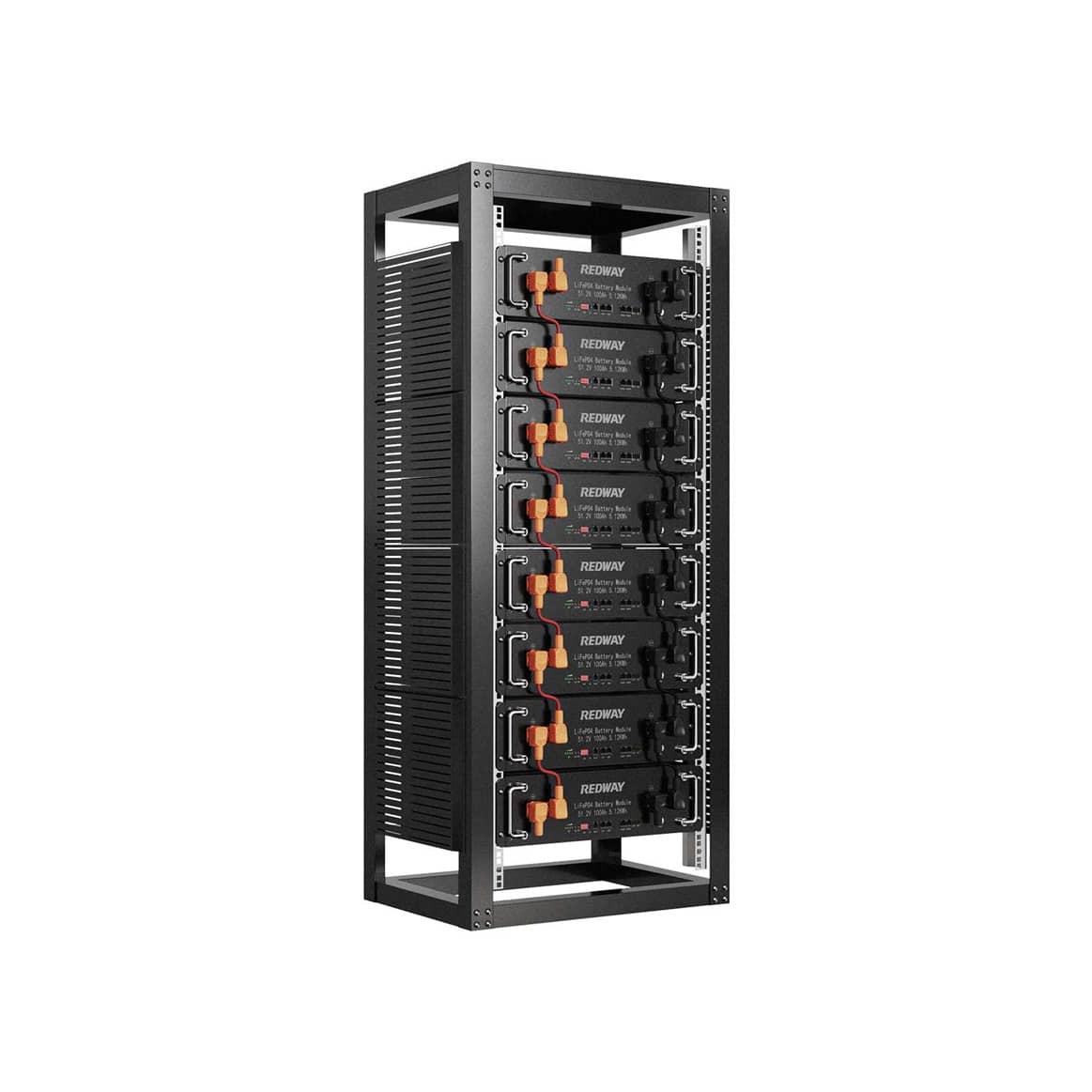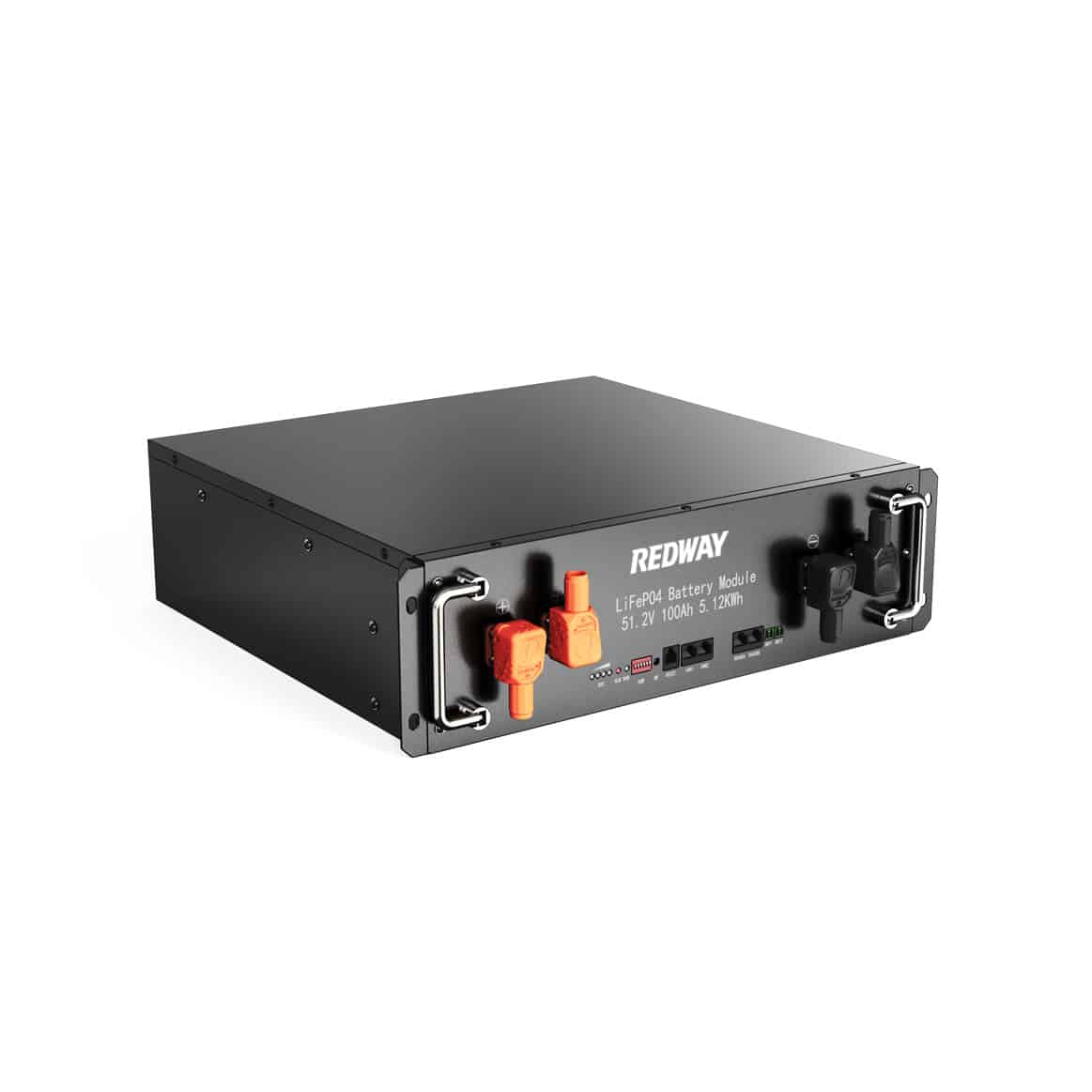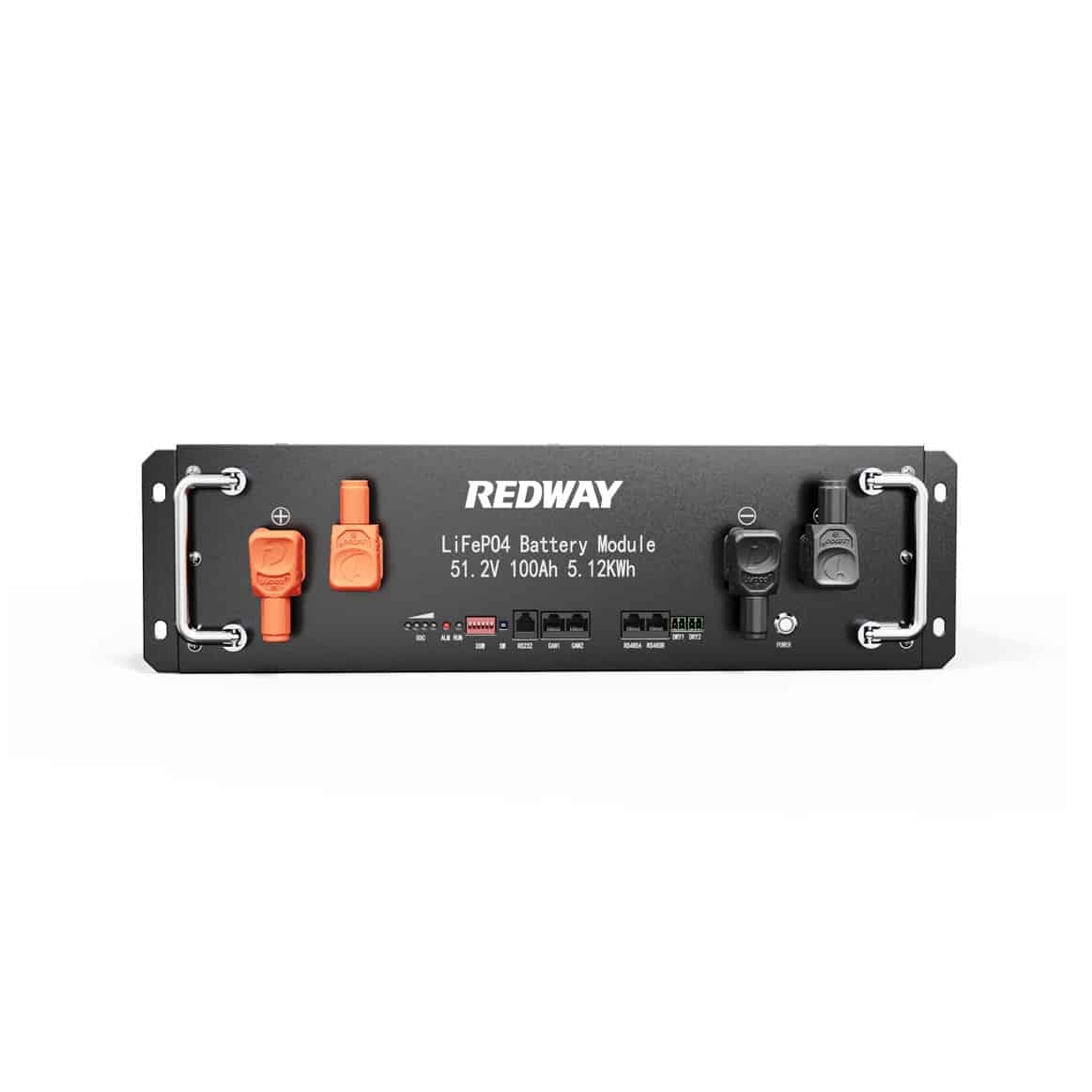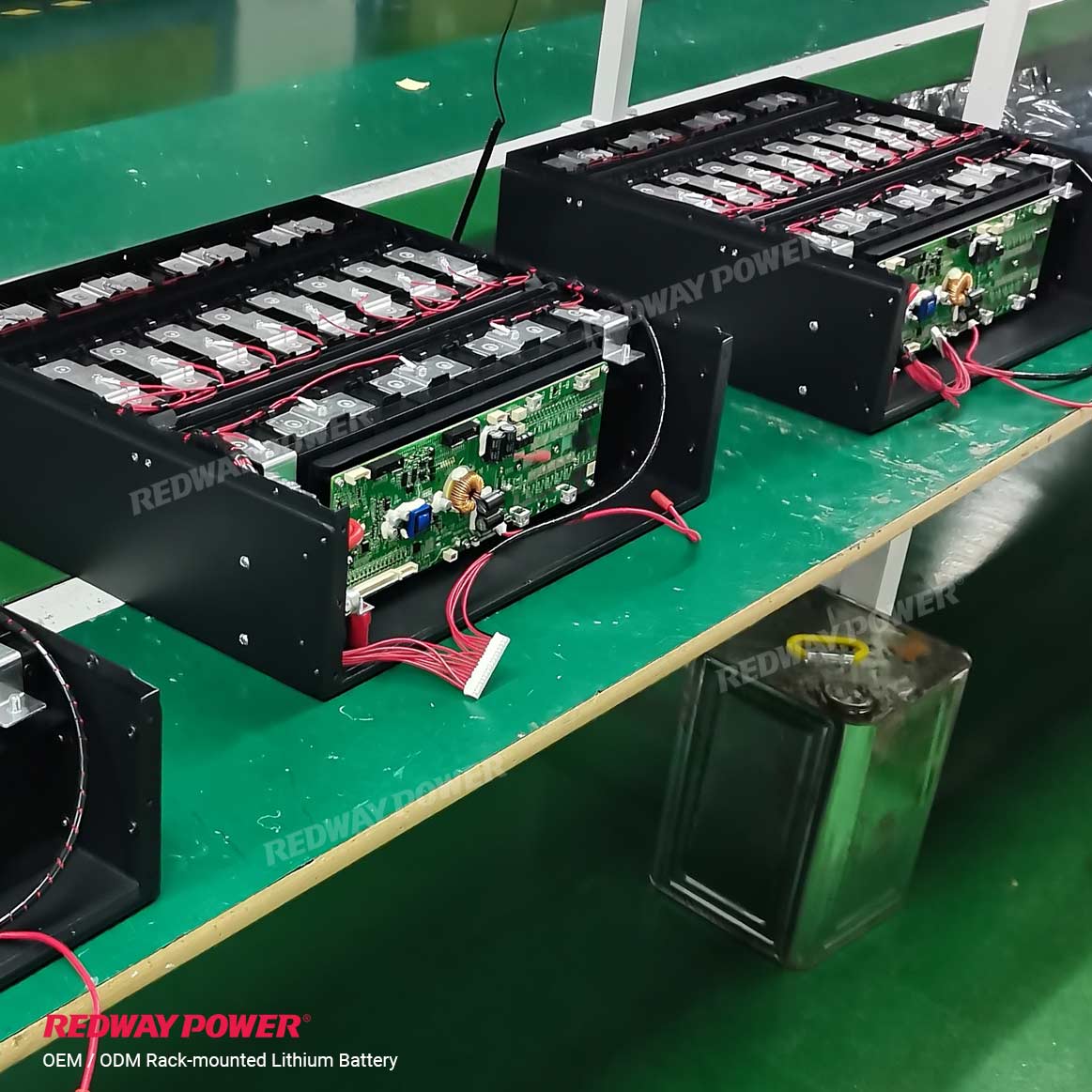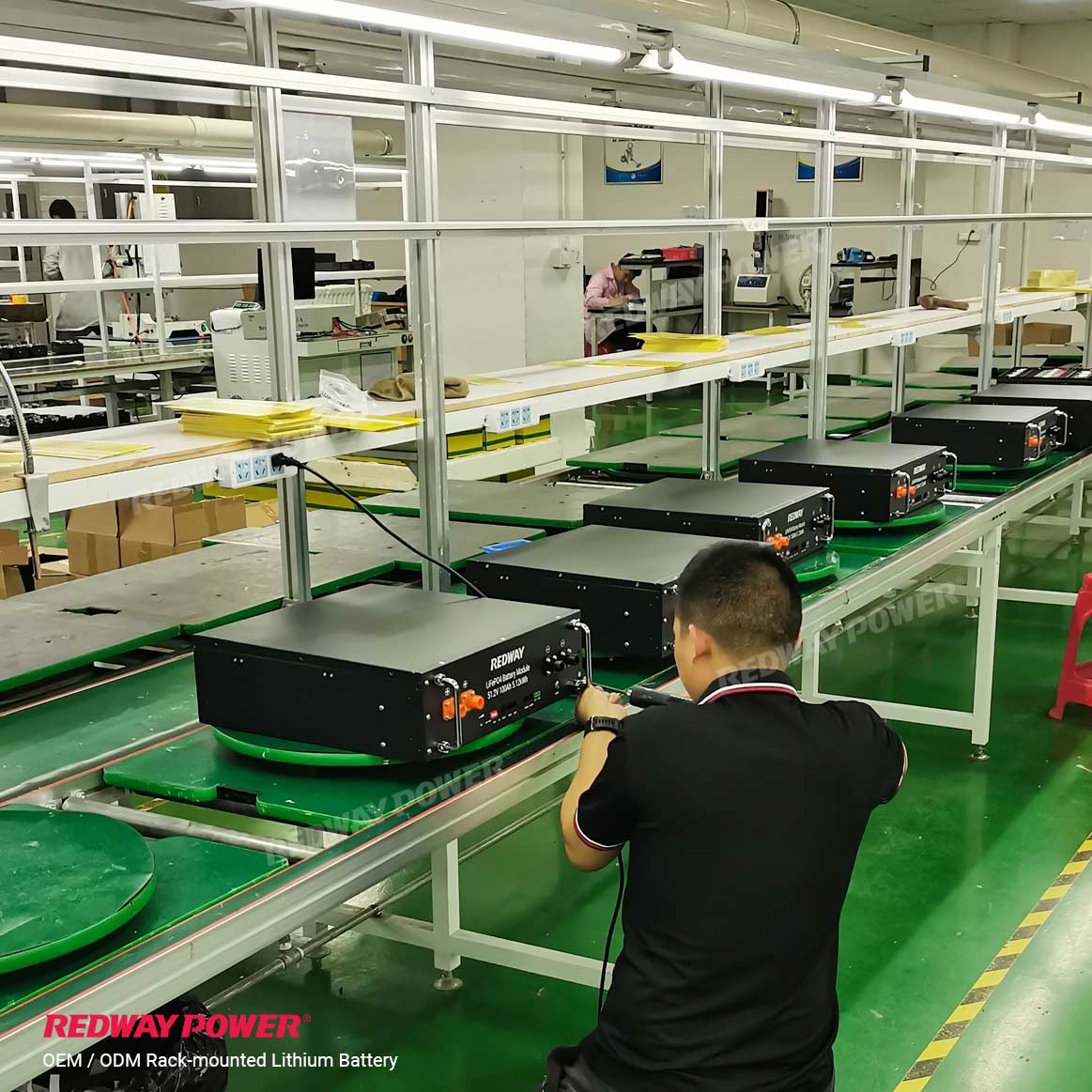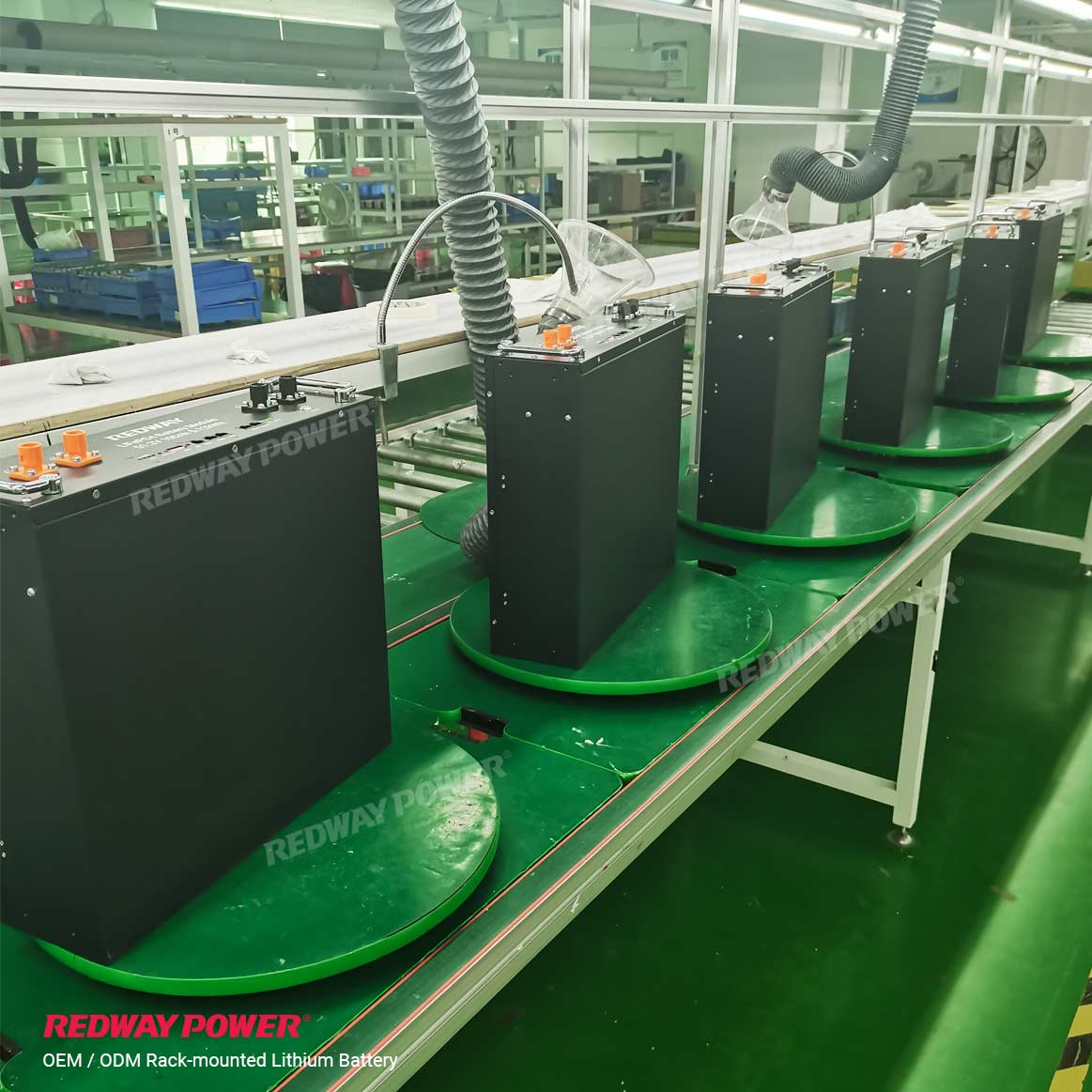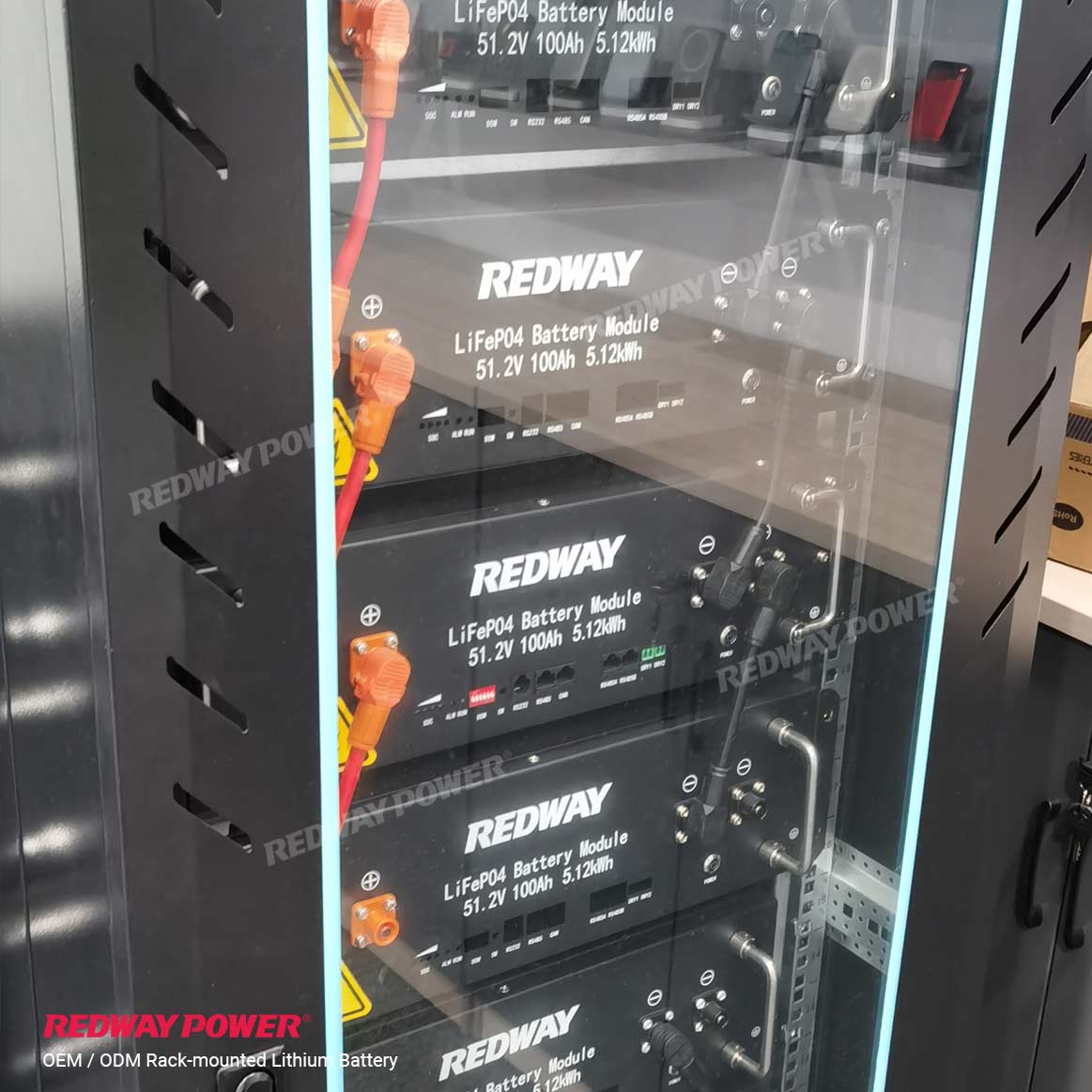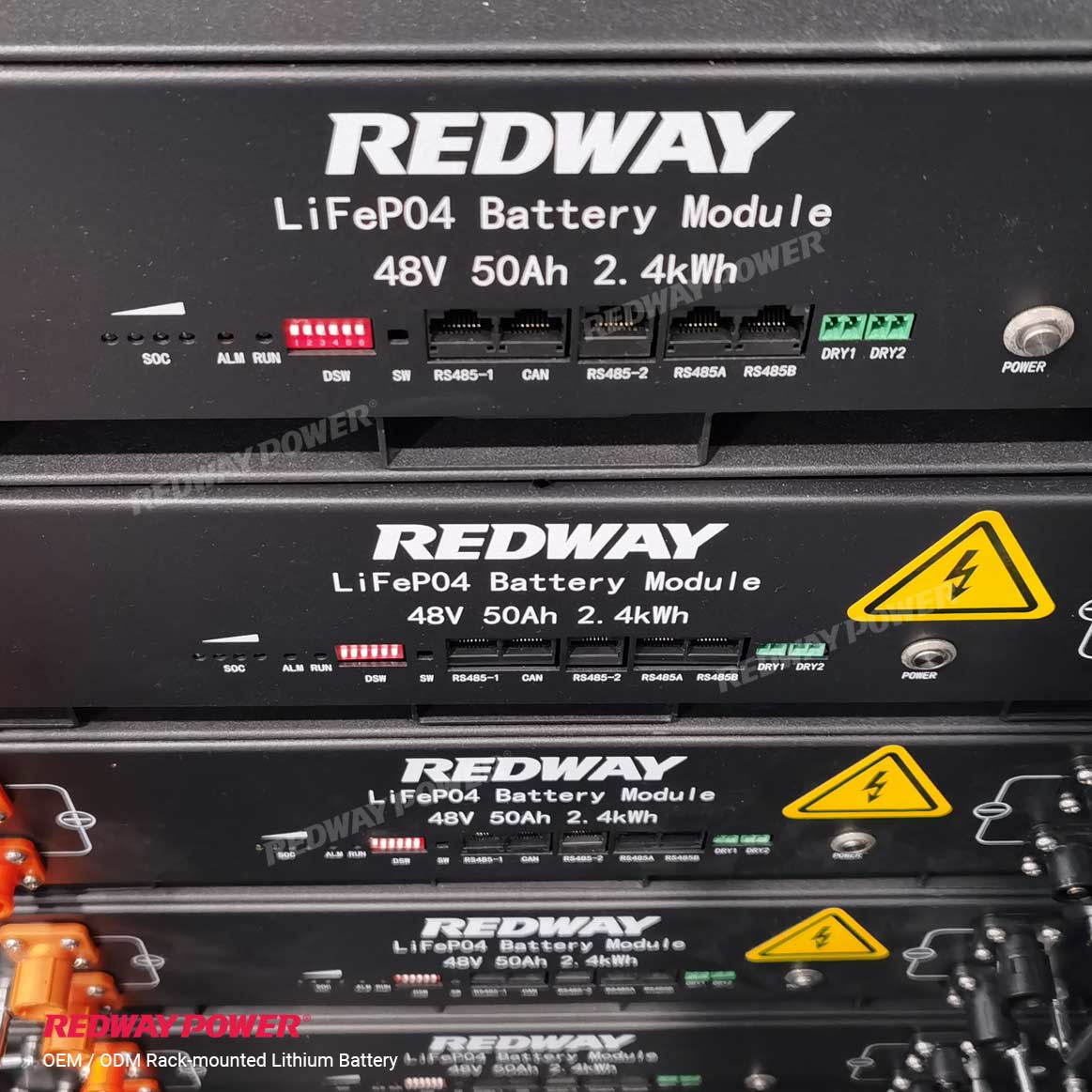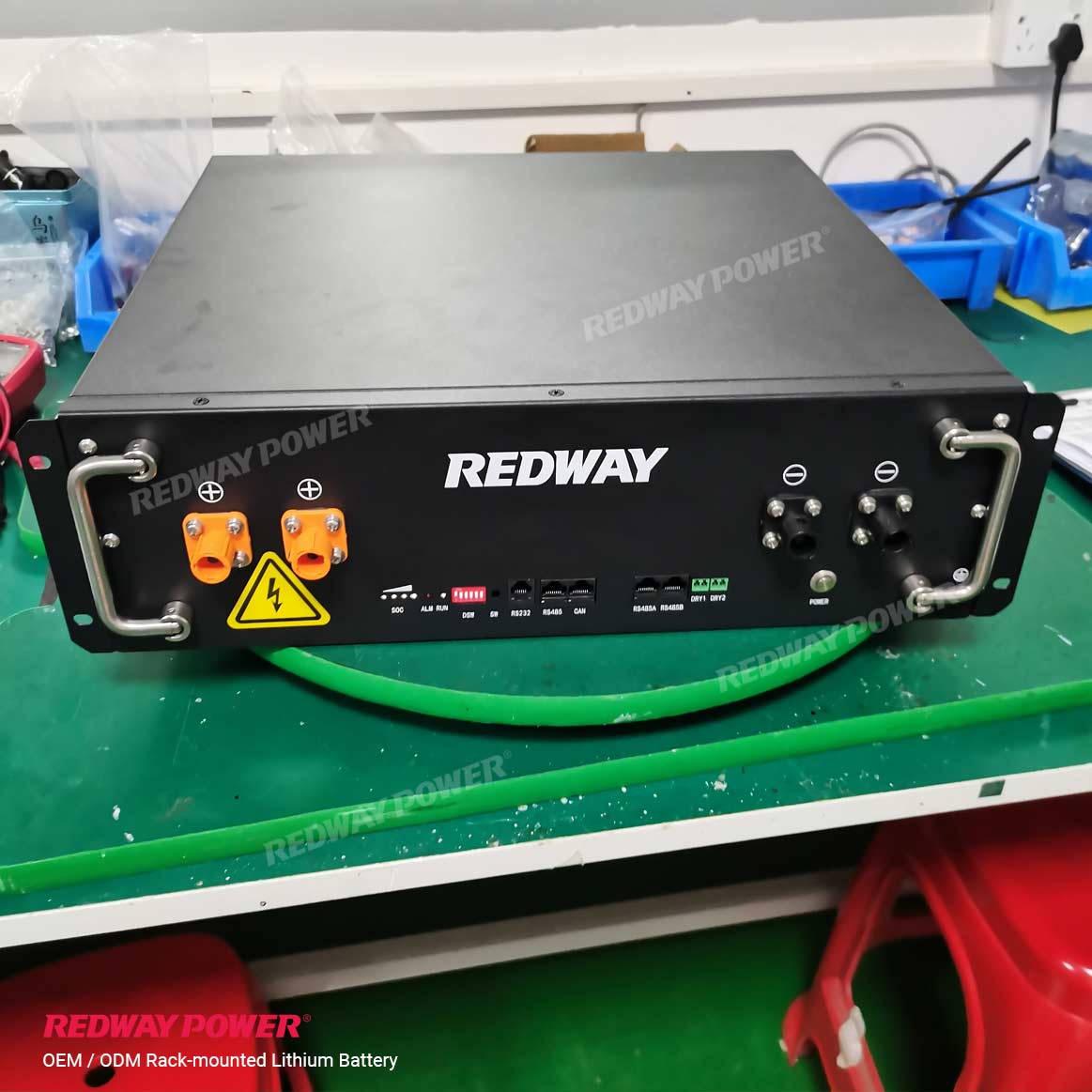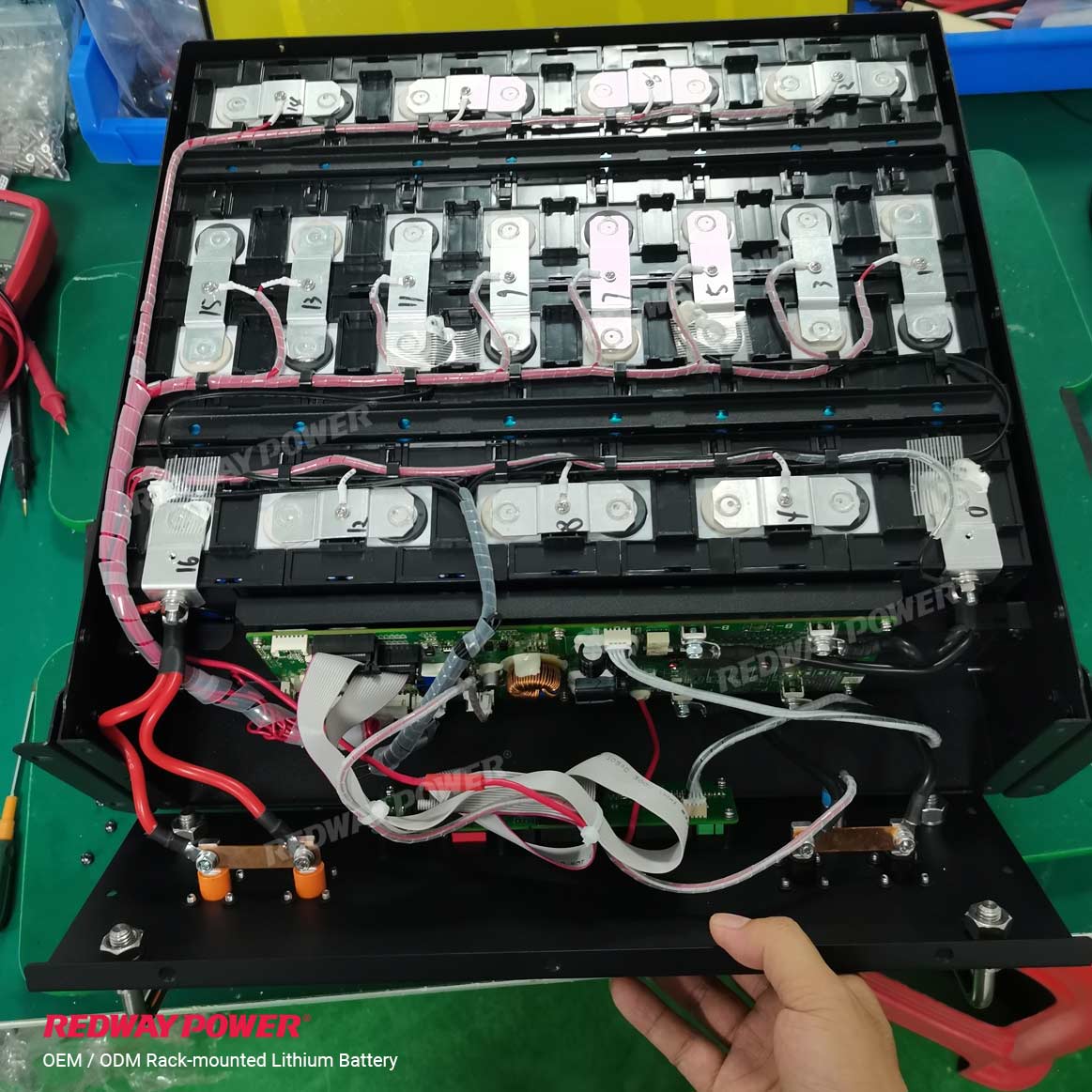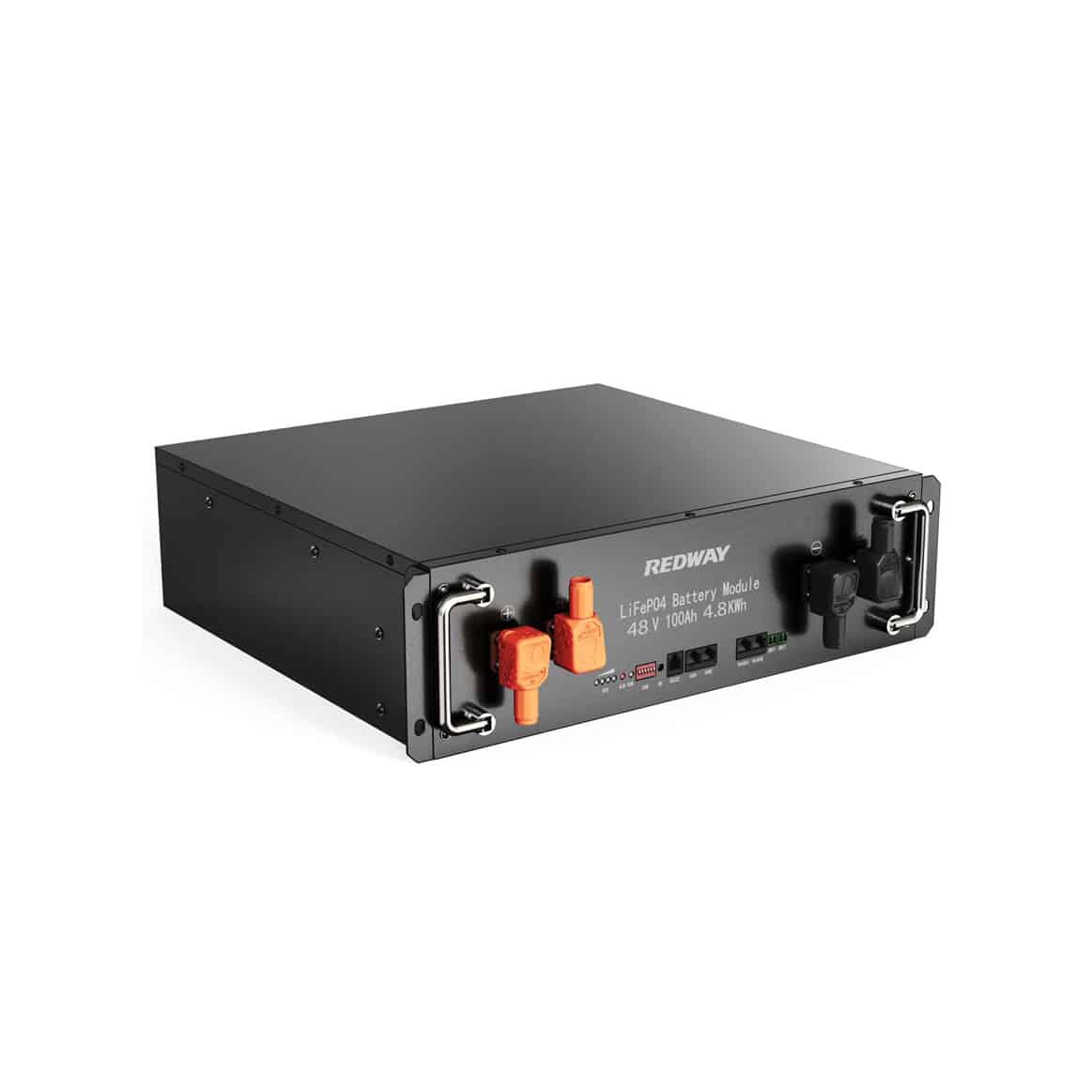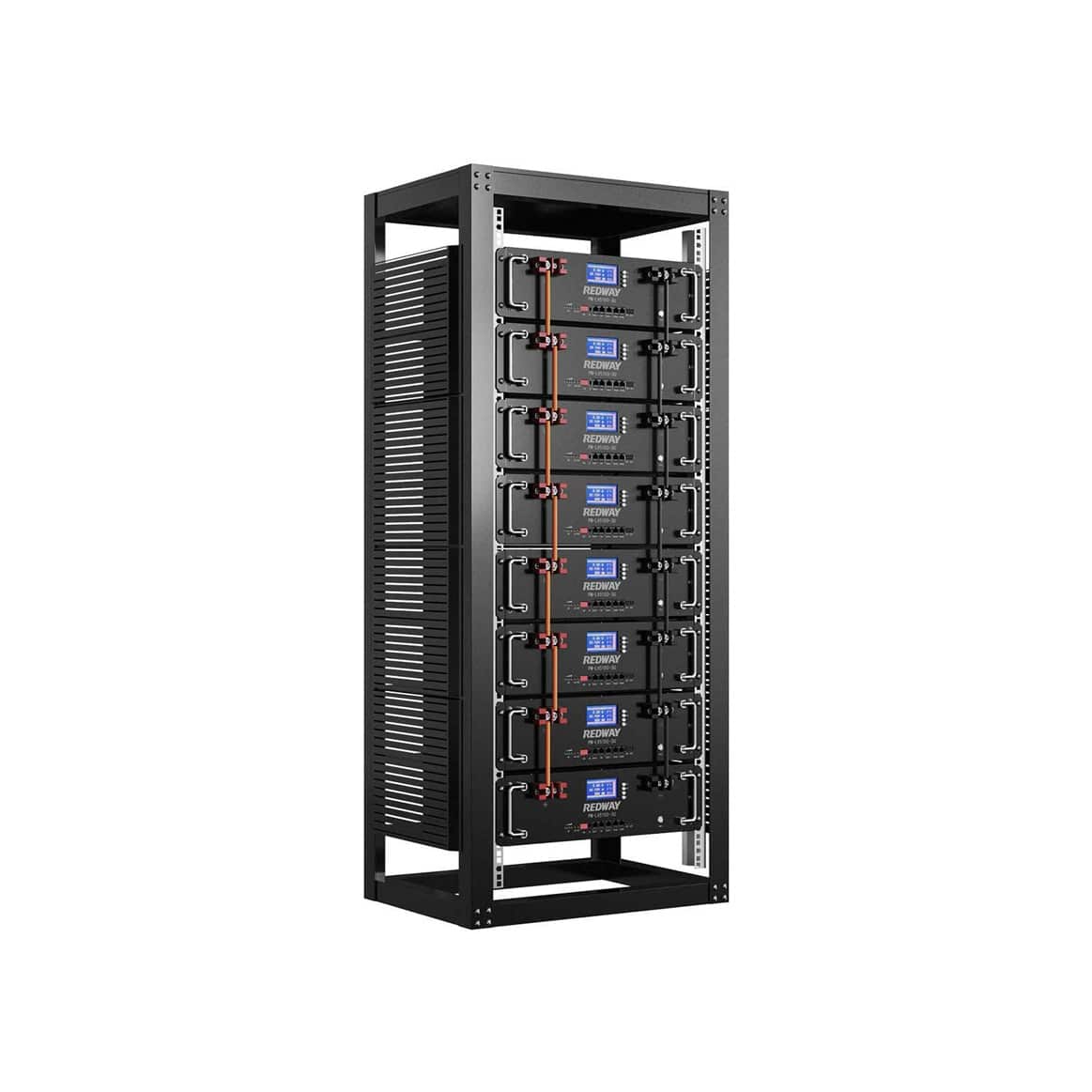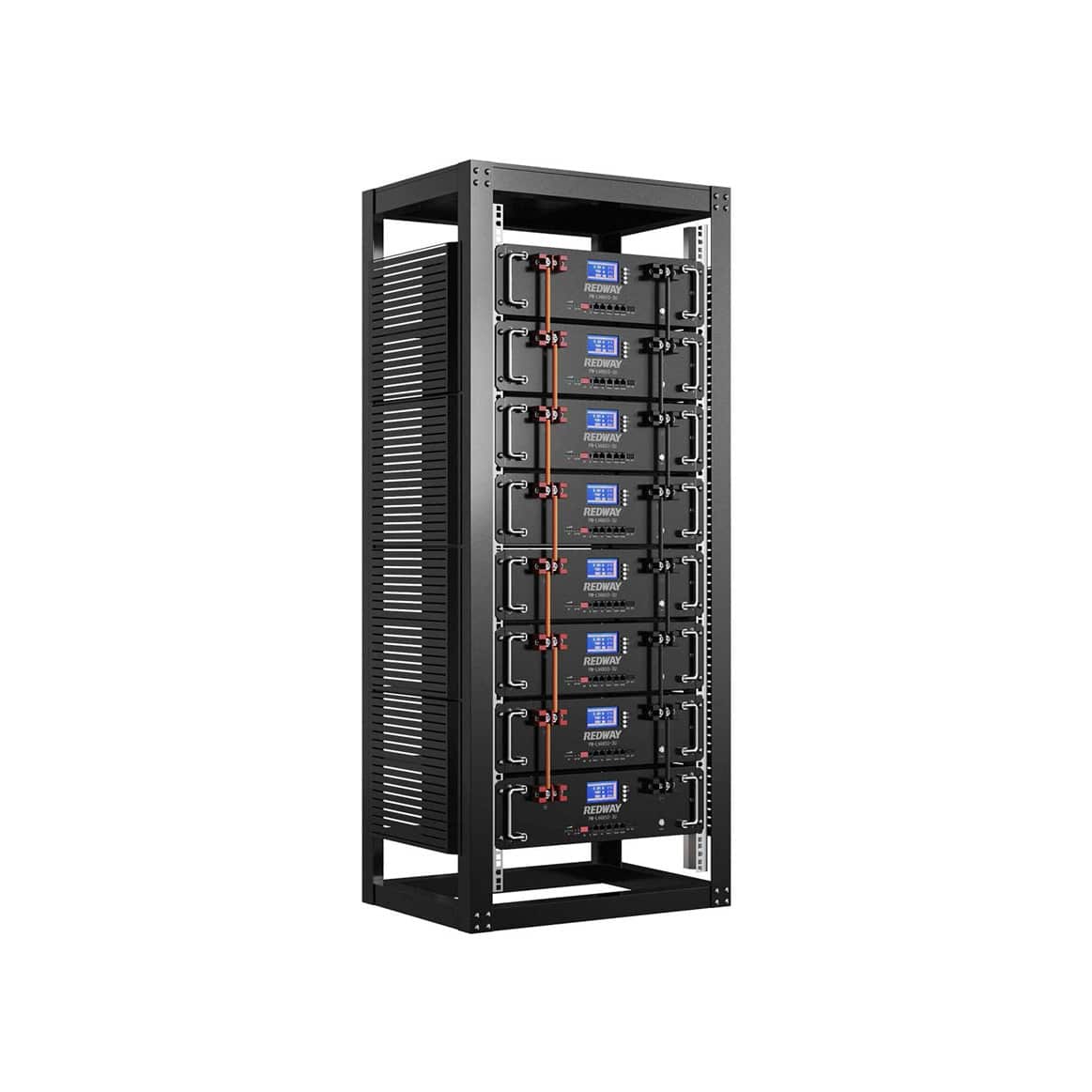Description
The PR-LV51100-3U-PRO is a high-performance 51.2V 100Ah LiFePO4 battery from Redway Battery, purpose-built for residential and commercial energy storage systems. Ideal for ESS, server rooms, data centers, telecom, hybrid, and off-grid applications, this 3U rack-mount battery offers 5.12kWh of reliable energy in a compact form factor.
With CATL/EVE lithium cells, this battery delivers over 8000 cycles at 80% DOD and up to 20 years of design life, ensuring long-term durability. It features a built-in smart JBD BMS that safeguards the battery against overcharge, over-discharge, overcurrent, overload, high temperatures, and short circuits.
Weighing just 41kg and measuring 440 x 440 x 136 mm, the PR-LV51100-3U-PRO is IP21-rated, easily stackable, and compatible with standard 19-inch racks. It supports parallel expansion up to 64 units, making it highly scalable for larger systems. The battery is also compatible with leading inverter brands like Victron, Deye, Goodwe, Growatt, Luxpower, SMA, and more.
With multiple communication interfaces (RS485, CAN) and optional features such as WiFi, Bluetooth, 4G, GPS, SNMP, and self-heating, this battery is a smart, flexible, and factory-direct energy solution for modern power storage needs.
Know More
Why Choose a 51.2V 100Ah LiFePO4 Server Rack Battery Factory (PR-LV51100-PRO) for Your Energy Storage Needs?
A 51.2V 100Ah LiFePO4 server rack battery like the PR-LV51100-PRO delivers over 5kWh energy, 8000+ cycles, and robust BMS protection, making it an ideal solution for data centers, solar, telecom, and backup power. Redway Battery leads with OEM/ODM flexibility, global certifications, and scalable rack-mount designs for wholesale and project integration.
What are the main features of the PR-LV51100-PRO 51.2V 100Ah LiFePO4 server rack battery?
The PR-LV51100-PRO is a 51.2V 100Ah (5.12kWh) lithium iron phosphate battery, engineered in a 3U rack-mount form for seamless integration into standard server cabinets. It boasts over 8000 cycles at 80% DOD, a smart BMS for safety, and supports up to 16 parallel units for scalable capacity. Its robust metal shell, compact 440×440×136mm dimensions, and 41–42kg weight ensure both durability and easy installation.
Chart: Key Specifications of PR-LV51100-PRO
| Feature |
Value |
| Nominal Voltage |
51.2V |
| Capacity |
100Ah |
| Energy |
5.12kWh |
| Cycle Life |
8000+ (80% DOD) |
| Dimensions |
440×440×136mm (3U) |
| Weight |
41–42kg |
| Max Parallel Units |
16 |
| Operating Temp |
-20°C to 60°C |
| BMS |
Smart (RS485/CAN) |
| Warranty |
10 Years |
| Certifications |
CE, UN38.3, IEC, MSDS |
How does the PR-LV51100-PRO ensure safety and reliability?
This model is equipped with a smart BMS that provides comprehensive protection against overcharge, over-discharge, overcurrent, overheating, and short circuits. Premium LiFePO4 cells ensure thermal stability and safety. The battery’s IP21-rated metal enclosure, optional upgrades like Bluetooth, WiFi, and heating, and compatibility with major inverter brands further enhance operational reliability.
What applications are best suited for the PR-LV51100-PRO server rack battery?
The PR-LV51100-PRO is designed for critical power backup in data centers, telecom base stations, renewable energy storage, and residential or commercial solar systems. Its modular, rack-mountable form factor allows for scalable installations, making it ideal for projects requiring high reliability, long lifespan, and easy system expansion.
How scalable and customizable is the PR-LV51100-PRO for OEM/ODM and wholesale buyers?
This battery supports up to 16 parallel connections, allowing a system to scale from 5.12kWh to over 81.92kWh. Redway Battery offers full OEM/ODM customization—capacity, communication protocols (RS485, CAN, Bluetooth), shell color, and branding can be tailored. MOQ for wholesale starts at 20–50 units, and delivery can be as fast as 20 days.
What are the installation and compatibility advantages?
The 3U rack-mount design ensures fast installation in standard 19-inch server racks. Quick plug connectors, inverter cables, and communication cables are included. The battery is compatible with leading hybrid/off-grid inverters (Victron, Growatt, Deye, SMA, and more), supporting both residential and commercial deployments. Optional LCD or LED touch screens provide real-time system monitoring.
Which certifications and quality standards does the PR-LV51100-PRO meet?
The PR-LV51100-PRO is certified to CE, UN38.3, IEC, and MSDS standards, ensuring compliance for global transport and installation. Redway Battery’s ISO 9001-certified factories guarantee rigorous quality control and traceability. Each unit comes with a 10-year warranty and comprehensive user documentation.
Chart: Certifications and Standards
| Certification |
Coverage |
| CE |
European Safety/EMC |
| UN38.3 |
Lithium Transport |
| IEC |
Electrical Safety |
| MSDS |
Material Safety |
| ISO 9001 |
Factory Quality |
How does the PR-LV51100-PRO perform in extreme environments?
With a discharge temperature range of -20°C to 60°C and charging from 0°C to 55°C, the battery is engineered for harsh conditions. Its robust metal shell and optional heating function ensure reliable performance in both hot and cold climates, making it suitable for global deployments.
Can the PR-LV51100-PRO be integrated with smart monitoring and IoT systems?
Yes, the PR-LV51100-PRO supports RS485, CAN, Bluetooth, and WiFi for real-time monitoring and remote management. Optional LCD screens and app connectivity enable predictive maintenance, diagnostics, and integration with building management systems—ideal for modern data centers and smart energy networks.
What payment, shipping, and support options are available for wholesale buyers?
Redway Battery offers flexible payment (T/T, L/C, PayPal) and shipping terms (FOB, EXW, CIF). Shipping options include sea, air, and land, with support for 10FT to 60FT containers. Comprehensive after-sales support, technical guidance, and global logistics ensure a smooth procurement process for wholesale and OEM clients.
Who is Redway Battery and what sets them apart in the server rack battery market?
Redway Battery, founded in 2012, is a leading manufacturer of LiFePO4 server rack batteries with factories in Dongguan and Huizhou, China. Their focus on innovation, OEM/ODM service, and strict quality control has earned them clients across China, Europe, Southeast Asia, and beyond. Redway’s expertise in custom energy storage solutions and global support distinguishes them in the B2B market.
Redway Battery Expert Views
“Redway Battery’s PR-LV51100-PRO exemplifies our commitment to reliable, scalable, and safe rack-mount LiFePO4 energy storage. With 8000+ cycles, smart BMS, and robust OEM/ODM support, our solution empowers data centers, telecoms, and solar projects worldwide. We’re dedicated to delivering future-ready energy storage for every client.”
Conclusion
The PR-LV51100-PRO 51.2V 100Ah LiFePO4 server rack battery delivers unmatched safety, longevity, and scalability for wholesale, OEM, and critical infrastructure projects. With advanced BMS, global certifications, and Redway Battery’s expert support, it is the premier choice for data centers, telecom, and renewable energy storage—ensuring reliable power and future-ready integration.
FAQs
What is the cycle life of the PR-LV51100-PRO?
Over 8000 cycles at 80% DOD, with a 20-year design life.
Can I customize the battery for my project?
Yes, Redway Battery offers OEM/ODM customization for capacity, BMS, communication, and branding.
Is the PR-LV51100-PRO compatible with my inverter?
It supports major brands like Victron, Growatt, Deye, SMA, and more.
What certifications does the battery have?
CE, UN38.3, IEC, MSDS, and ISO 9001 factory certification.
How quickly can I receive a wholesale order?
MOQ is 20–50 units, with typical delivery in 20 days and global shipping options.

